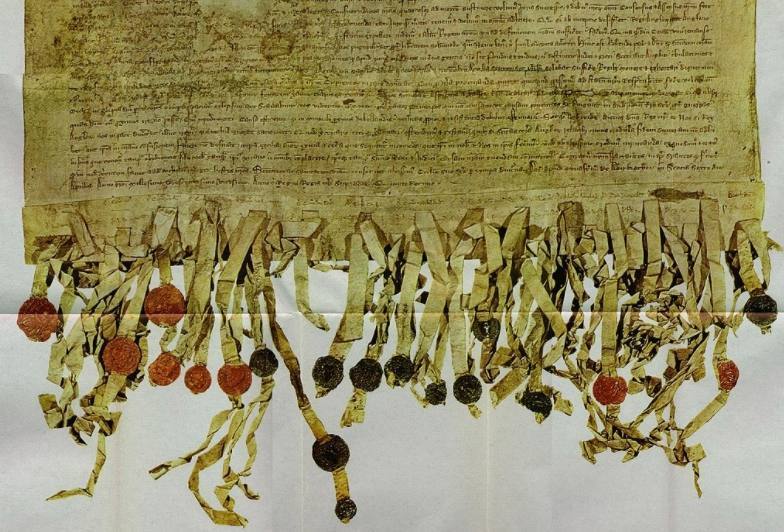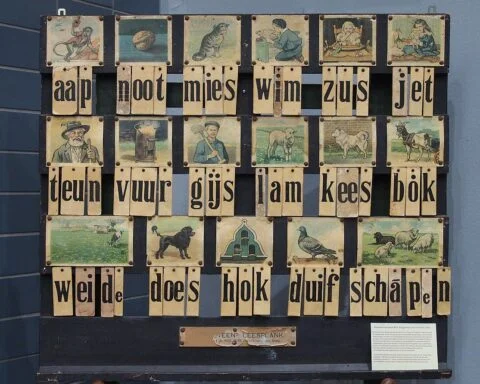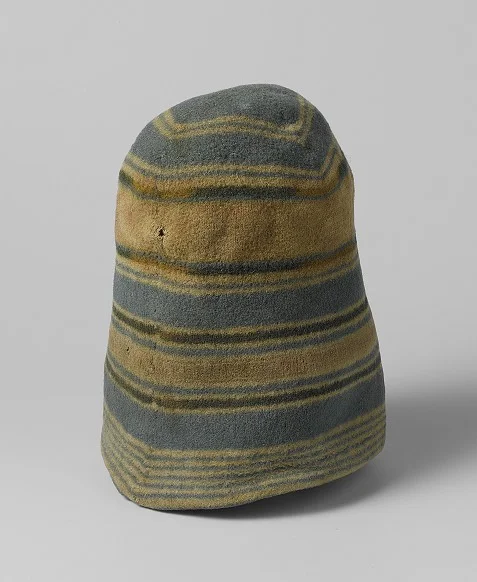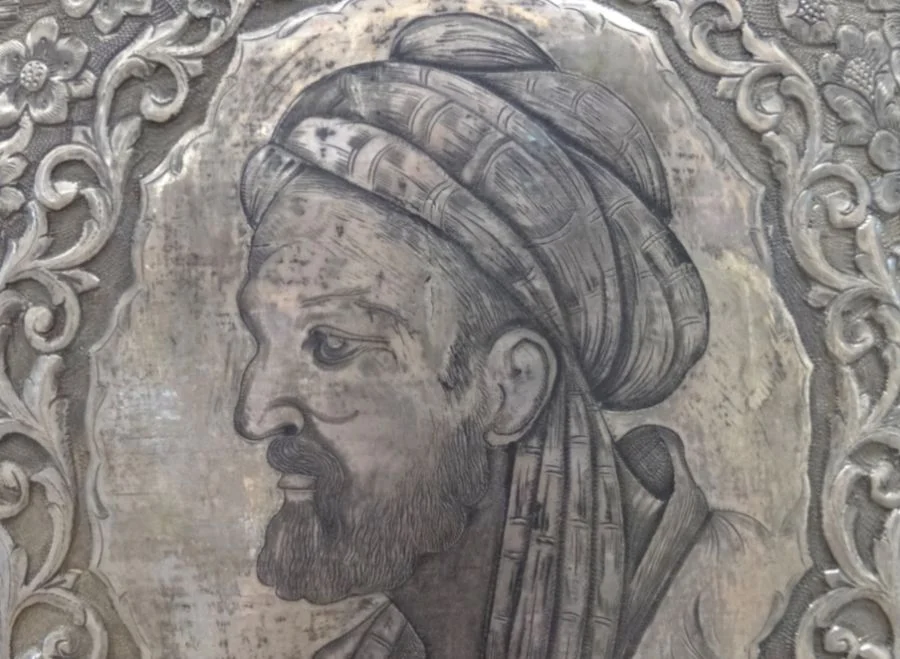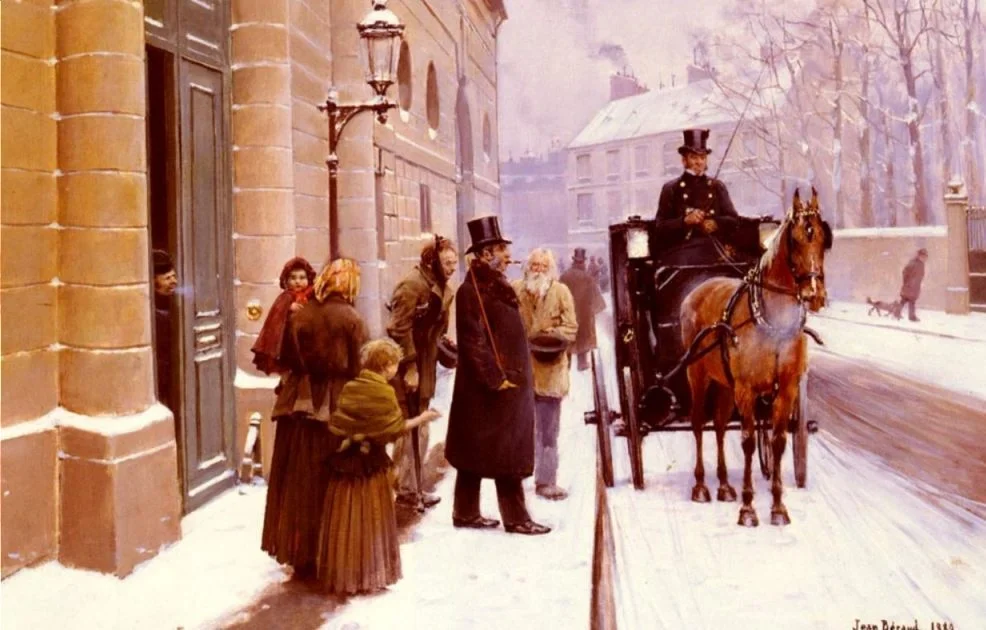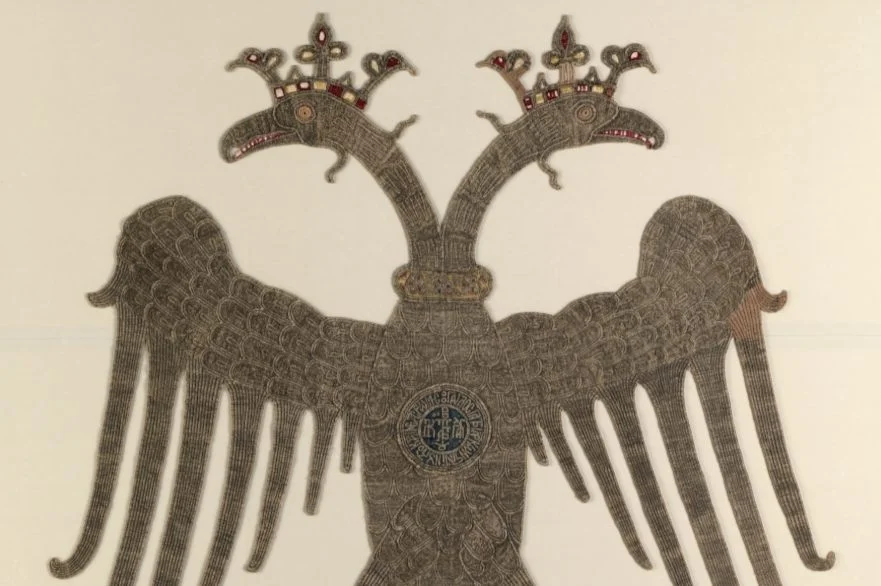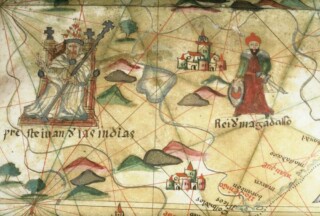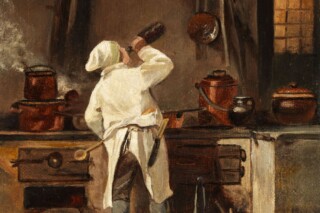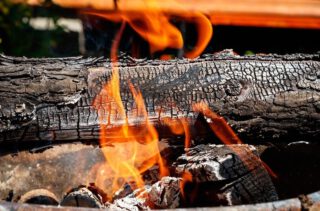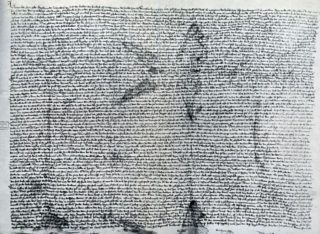De Declaration of Arbroath van 6 april 1320 wordt door velen beschouwd als de Schotse onafhankelijkheidsverklaring. Feitelijk ging het in de veertiende eeuw echter om een brief en niet zozeer om een verklaring. Met de brief richtten Schotse edelen zich rechtstreeks tot paus Johannes XXII met het verzoek om Schotland als autonome staat te erkennen.
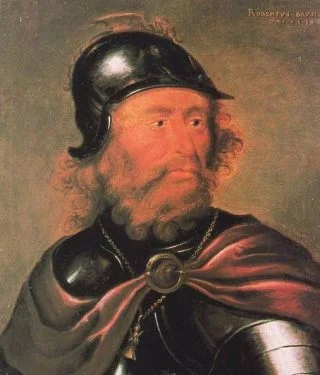
Na de omverwerping van Balliol brak in Schotland een grote opstand tegen de Engelse koning uit. Deze werd geleid door William Wallace. Robert the Bruce, die die Engelse koning kort daarvoor nog gesteund had in zijn strijd tegen Balliol, steunde de opstandelingen. De rebellie mislukte echter. Wallace werd gevangen genomen en door de Engelsen geëxecuteerd. Robert the Bruce bleef zich hierna wel verzetten tegen de Engelse heerschappij. Hij wierp zich op als de rechtmatige koning van Schotland. Na een grote overwinning op de Engelse koning tijdens de Slag bij Bannockburn (1314) zat Bruce uiteindelijk vrij stevig in het zadel, als koning Robert I van Schotland.
Verzoek aan de paus
Zes jaar na de overwinning bij Bannockburn ondertekenden negenendertig belangrijke Schotse edelen en baronnen een brief die naar paus Johannes XXII werd gestuurd. De paus werd hierin gevraagd zijn steun uit te spreken voor de nieuwe koning van Schotland. Hoewel de brief ogenschijnlijk vooral bedoeld was om steun in het buitenland te vinden, diende hij ook een binnenlands doel. Alle edelen die het document voorzagen van hun zegel, spraken daarmee namelijk indirect ook hun steun uit voor de nieuwe koning, ook diegenen die Robert’s aanspraken op de troon aanvankelijk niet hadden gesteund. Het idee om het document op te stellen kwam naar verluidt uit de koker van Bernard de Linton, kanselier van Robert I.
De brief werd in het Latijn opgesteld. De bekendste passage luidt als volgt:
“Wij zijn bevrijd van vele en grote kwaden door de moed van onze heer en koning Robert. Zoals Judas Maccabeüs en Jozua heeft hij pijn, verlangen en gevaar getrotseerd om zijn volk en koninkrijk te redden van hun vijanden. Vanwege zijn afkomst, de voorzienigheid van God, de wettige opvolging en onze onderlinge instemming, hebben wij hem tot onze koning gemaakt, omdat door hem onze redding is bewerkstelligd.
Als hij ons doel zou opgeven en zou knielen voor de Engelsen, dan zouden wij hem uit ons midden verwijderen als een vijand, en een andere koning kiezen, die ons zou beschermen. Want zolang er nog honderd van ons overgebleven zijn, zullen wij nooit knielen voor de Engelse heerschappij. Wij vechten niet voor glorie, noch voor rijkdom, noch voor eer, maar voor die vrijheid, waarvan geen mens afstand doet, behalve met zijn leven.” – Bron Vertaling (volledige Engelse vertaling onder dit artikel)
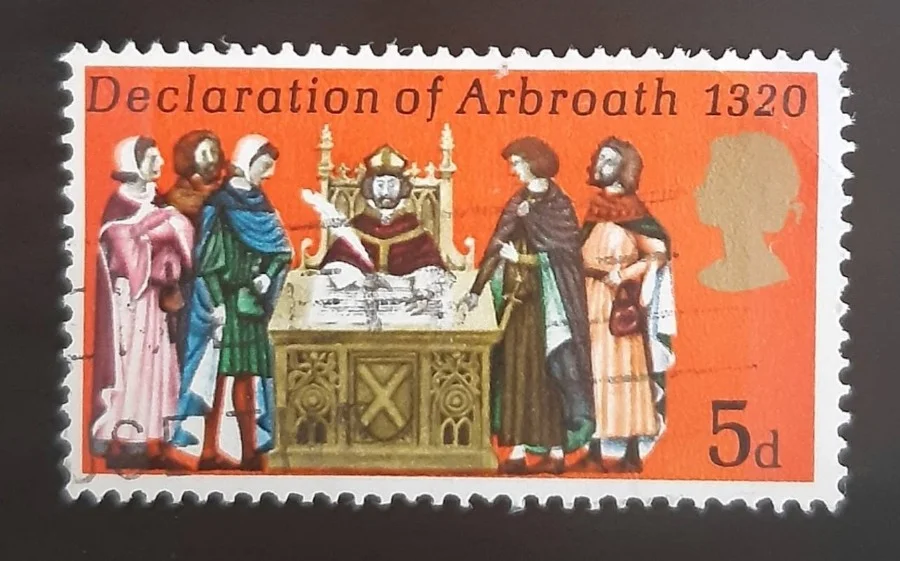
De brief bereikte de paus, maar het is niet helemaal duidelijk welk effect het schrijven precies op hem had. Wel is bekend dat de paus geen grote vriend van Robert was. Die had daarvoor geregeld pauselijke decreten genegeerd en een rivaal ooit in een kerk laten doden. Daden waarvoor de paus paus Robert al had geëxcommuniceerd. In een brief aan de Engelse koning Eduard II van Engeland hamerde de paus in deze tijd op het belang van een wapenstilstand tussen Engeland en Schotland. Een uitspraak over de Schotse koningskwestie deed hij echter niet.
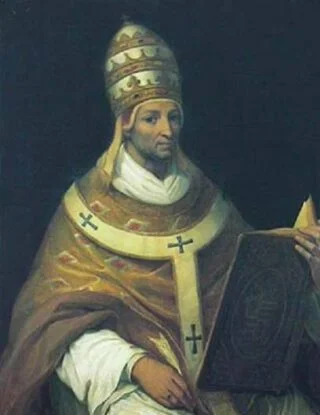
Actueel
Het enig overgebleven exemplaar van de Declaration of Arbroath wordt tegenwoordig bewaard door het Nationaal Archief van Schotland. Het was de bedoeling dit exemplaar in 2020, precies zevenhonderd jaar nadat de edelen het document ondertekenden, te tonen aan het publiek. De coronacrisis gooide echter roet in het eten.
Door aanhangers van de huidige Schotse onafhankelijkheidsbeweging wordt recentelijk geregeld gewezen naar de zevenhonderd jaar oude Declaration of Arbroath. Critici wijzen erop dat de verklaring in werkelijkheid ‘slechts’ een brief was en bovendien lange tijd nauwelijks aandacht kreeg in Schotland. Het document werd volgens de Schotse literatuurprofessor Robert Crawford bijvoorbeeld lange tijd helemaal niet gekoesterd als nationale schat, het werd aangevreten door ratten en pas in de zeventiende eeuw in het Engels vertaald.
In 2016 werd het document opgenomen in het UNESCO Memory of the World Register. Dit register bevat documentair erfgoed dat van uitzonderlijke betekenis is geweest voor de wereld.
Ook interessant: Het volkslied van Schotland
…of: Stone of Scone – De Schotse ‘Steen van het Lot’
Bronnen ▼
-https://www.britannica.com/place/Scotland/The-Wars-of-Independence#ref483843
-https://nl.wikipedia.org/wiki/Declaration_of_Arbroath#Inhoud
-https://www.scottisharchivesforschools.org/WarsOfIndependence/Unit10FordunsChronicle.asp
Engelse vertaling van de Declaration of Arbroath:
To the Most Saintly Father in Christ the Lord, the Lord John, by divine Providence, Supreme Pontiff of the Holy Roman Catholic Church, from his humble and devoted sons, Duncan – Earl of Fife, Thomas Ranulph – Earl of Moray, Lord of Man and Annandale, Patrick Dunbar – Earl of March, Malise – Earl of Strathearn, Malcolm – Earl of Leven, William – Earl of Ross, Magnus – Earl of Caithness and Orkney, and William – Earl of Sutherland; Walter – Seneschal of Scotland, William Soules – Butler of Scotland, James – Lord of Douglas, Roger Mowbray, David – Lord of Brechin, David Graham, Ingram Umfraville, John Menteith – Guardian of the Earldom of Menteith, Alexander Fraser, Gibert Hay – Constable of Scotland, Robert Keith – Marischal of Scotland, Henry Sinclair, John Graham, David Lindsay, William Olifaunt, Patrick Graham, John Fentoun, William Abernethy, David Wemys, William Montefix, Fergus Ardrossan, Eustace Maxwell, William Ramsay, William Montealt, Alan Moray, Donald Campbell, John Cameron, Reginald leChien, Alexander Setoun, Andrew Leslie, and Alexander Stratoun, along with the other Barons, Freeholders and all the common people of the kingdom of Scotland, we send every filial reverence with devoted kisses of your blessed feet.
Most Holy Father and Lord, we know from the deeds of the ancients and we read from books — because among the other great nations of course, our nation of Scots has been described in many publications — that crossing from Greater Scythia, via the Tyrhennian Sea and the Pillars of Hercules, and living in Spain among the fiercest tribes for many years, it could be conquered by no one anywhere, no matter how barbarous the tribes. Afterwards, coming from there, one thousand two hundred years from the Israelite people’s crossing of the Red Sea, to its home in the west, which it now holds, having first thrown out the Britons and completely destroyed the Picts, and even though it was often attacked by the Norse, the Danes and the English, it fought back with many victories and countless labours and it has held itself ever since, free from all slavery, as the historians of old testify. In their own kingdom, one hundred and thirteen kings have reigned of their own Blood Royal, without interruption by foreigners.
The merits and nobility of these people, even if they were not obvious from the other signs, shine out openly enough from this, that even though they lived at the furthermost ends of the Earth, the King of kings and the Lord of lords, Jesus Christ after His Passion and His Resurrection, called them nearly the first to his most Holy Faith. Nor did He want to confirm them in the said Faith by anyone but the first to be an Apostle, despite being second or third in rank, the brother of the Blessed Peter, gentle Saint Andrew, whom ever since, He has asked to protect them as their Patron.
However, the Holy Fathers, your predecessors, considering these thoughts with a careful mind, bestowed on this very kingdom and people many favours and countless privileges since it was the special charge of Blessed Peter’s brother. Thus, obviously, the result was that until now our people lived free and untroubled under their protection until that mighty prince, Edward, King of the English, the father of he who now reigns, came with the appearance of a friend and ally to harass like an enemy, our leaderless kingdom and our people who were accustomed neither to evil or treachery nor to battles or ambushes. He committed injustices, killings, attacks, robberies, arson, the imprisonment of priests, the burning of monasteries, the looting of churches, and countless other enormous outrages, on the said people sparing no one on account of age or sex, saintliness or rank, to an extent that no one could describe nor fully believe unless they had experienced it.
From these countless evils, with His help who afterwards soothes and heals wounds, we are freed by our tireless leader, king, and master, Lord Robert, who like another Maccabaeus or Joshua, underwent toil and tiredness, hunger and danger with a light spirit in order to free the people and his inheritance from the hands of his enemies. And now, the divine Will, our just laws and customs, which we will defend to the death, the right of succession and the due consent and assent of all of us have made him our leader and our king. To this man, inasmuch as he saved our people, and for upholding our freedom, we are bound by right as much as by his merits, and choose to follow him in all that he does.
But if he should cease from these beginnings, wishing to give us or our kingdom to the English or the king of the English, we would immediately take steps to drive him out as the enemy and the subverter of his own rights and ours, and install another King who would make good our defence. Because, while a hundred of us remain alive, we will not submit in the slightest measure, to the domination of the English. We do not fight for honour, riches, or glory, but solely for freedom which no true man gives up but with his life.
It is for these reasons, Reverend Father and Lord, that we beg your holiness with humble hearts and every urgent prayer, knowing that you will review everything with a true heart and a saintly mind since before Him in Whose name you reign on Earth there is neither bias nor difference between Jew or Greek, Scot or Angle, and considering the trouble and anguish brought on us by the English, that you will warn the king of the English, that he ought to be satisfied with what he owns because once it used to be enough for seven kings, and that you will think it right to encourage him to leave us Scots in peace, living in poor Scotland beyond which there is nothing habitable and nothing we desire. For this, we will effectively do whatever we can to gain peace, bearing in mind our situation.
For this concerns you, Holy Father, since you see the raging ferocity of the pagans against Christians, which the sins of the Christians deserve, and the borders of Christendom being pushed back every day and you must see how much it will hurt your saintly reputation, if (which let it not) any part of the church is overcome or induced to sin during your time. Therefore let Him rouse those Christian leaders who say that they cannot go in support of the Holy Land for no reason although they pretend that the reason is wars with their neighbours. The reason for their difficulties is actually because they expect better rewards and weaker resistance in warring with their smaller neighbours. But the omniscient One knows well enough with how light a heart we and our aforesaid lord and king would go there, if the king of the English would leave us in peace.
If your Holiness, trusting too much in the English version of these events, does not truly believe us, or does not stop supporting them to our disadvantage, then, we believe that the slaughter of bodies, the loss of souls, and all the other things that will follow, the injuries that they will do to us and we to them, will be blamed by the Most High on you.
Thus, as if your sons, we are and always will be ready to do for you, His vicar, whatever you require insofar as it is our duty; and so, we commit the upholding of our cause to the Supreme King and Judge, entrusting our worries to Him and completely confident that He will fill us with courage and reduce our enemies to nothing
May God grant you holiness and health in His holy church for a long time.
Sent from the Monastery of Arbroath in Scotland, on the 6th day of the month April, in the year of Grace 1320, the fifteenth year of our abovementioned king’s reign.

